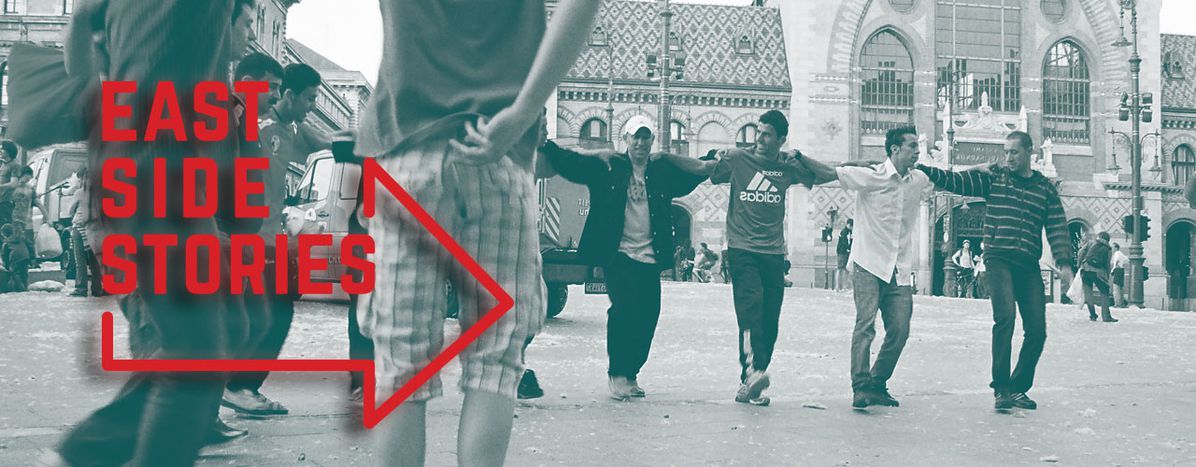
Refugees in Hungary: Welcome and bon-fucking-voyage
Published on
In Hungary, economic and social barriers stand in the way of incoming refugees, alongside physical walls. Here, a Hungarian national offers his personal opinion on the difficulties that the refugee crisis present for the once thriving capital of the Carpathian basin.
It is in those moments when I am sitting in a central pub, a remote café or some dive of a bar – when I unwillingly overhear people arguing about current events – that a song quietly creeps into my head. If you’ve seen the musical about the demon barber of Fleet Street in London (or the 2007 movie), you too may recall the lyrics of the opening song: “There’s a hole in the world, like a great black pit, and it’s filled with people, who are filled with...”
This isn’t the way I think of my beloved country and the people living here. To me, Hungary is the country of all countries. Even if years ago she ceased to be the thriving capital of the Carpathian basin, the example for all, a role model to follow. Today I’d say she’s screwed – struggling to find her path with no beliefs or values. Some might say the opposite – that she has strong beliefs and values – however to me it is apparent that Hungary has been struggling. Today she’s a country that shuns progression in favour of conflicting ideas and personalities. She strayed long ago from her quest to become one of the most exciting, mesmerizing, smart, unparalleled and beautiful places on Earth. She became a tertiary country with a jack-knifed economy, and a society slowly pulling away from outsiders.
The refugee question is proving to be tougher than we thought. The European Union collectively, and each state individually, have an ever changing opinion – but alas, the question remains unanswered. Should they stay or should they go?
Barriers, both physical and social
Hungary has been the centre of attention since July thanks to its infamous barbed wire fence (more iron rag than curtain?), built along its border with Serbia. The uproar of negative reaction – or at the very least acknowledgement that the policy was controversial – was understandable. Especially since twenty-odd years ago Hungary played a prominent role in breaking down the man-made border between the East and West. On top of this, how unwelcoming (or un-European?) is it to build a barrier against hundreds of thousands of fellow human beings seeking political asylum, when their best option is to flee their homes?
I find Jean-Claude Juncker’s assertion that he wouldn’t want to live in a Europe that restricts its borders beautiful, and laughable, in its naivety. I almost agreed with comments from the German media when they initially slandered Hungary because of the fence. Mercifully, irony intervened once again – just a few weeks later they realized they had no choice but to also tighten their border controls.
Did you know that – according to this article – since this summer, 19 Hungarian laws and just as many government policies have been modified due to the refugee issue? Do we ever think about the additional ramifications of legal and State related bureaucracy? About their delicate complexity? In a way is it “only” our feelings that help form a public opinion, one that our politicians and respectful representatives are supposed to take into consideration?
Mistrust of "outsiders" and economic realities
What I understood from overhearing my fellow boozers is this: Hungarians are generally straightforward when it comes to not trusting anybody and not wanting to follow orders from outsiders. A couple of years ago, one of the hottest topics generating an upheaval within our society was the question of whether to give dual citizenship to those Hungarians stranded outside the country’s historical borders. Neither our common cultural roots, nor our unique language, or even in a lot of cases family ties, were enough to break down the mistrust our nation felt towards “the other side”.
Today we’re talking about “outsiders” from much further away, who have a completely different language, religion and culture from our own. This disgraceful rejection – and hats off in contrast to those who’ve helped in numerous ways – shouldn’t be a surprise.
Unfortunately, yet understandably, it seems that our Prime Minister’s xenophobic handling of the situation is in accord with public opinion. Islamic migration to Hungary – even in a minor way – would present unmanageable tasks and obstacles for our nation, not only because of economic realities, but also because of our limited intellectual, moral and institutional preparedness. Although to be clear, the nationwide success of the current Hungarian refugee policies isn’t at all derived from these worries…
---




